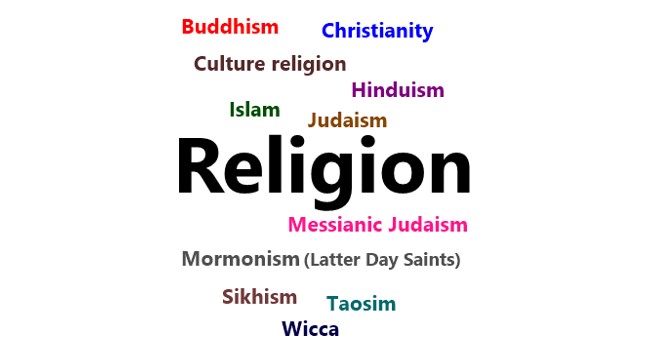
“Evangelicalism has been hijacked by the religious right.” Those are the words of Lisa Sharon Harper, president of Freedom Road, a consulting group that trains religious leaders on participating in social action.
Participating in social action isn’t a new thing for those who serve Messiah Jesus. As Harper and her pastor José Humphreys explain to journalist Eliza Griswold in Evangelicals of Color Fight Back Against the Religious Right, “During the religious revivals that swept Europe and the United States in the eighteenth and nineteenth centuries, being born again involved a newfound commitment to fighting societal ills, like slavery, poverty, and labor exploitation.”
States Harper, “Evangelicalism at its roots was a faith that was vehemently jealous for the human dignity of all people.”
Writes Griswold, “In the nineteen-fifties, Billy Graham reclaimed and popularized evangelicalism. His crusades drew tens of thousands of people. In opposition to the fundamentalists, Graham invited his followers to engage in the world, and he challenged some of the long-standing racism within the church, and America itself, by preaching alongside Martin Luther King, Jr. Still, as Harper and others argue, racism persisted among evangelicals and fueled the rise of the religious right.”
In The Real Origins of the Religious Right, Dartmouth professor Randall Balmer explains how racism among white Americans fueled the Religious Right:
On June 30, 1971, the United States District Court for the District of Columbia issued its ruling in the case, now Green v. Connally (John Connally had replaced David Kennedy as secretary of the Treasury). The decision upheld the new IRS policy: “Under the Internal Revenue Code, properly construed, racially discriminatory private schools are not entitled to the Federal tax exemption provided for charitable, educational institutions, and persons making gifts to such schools are not entitled to the deductions provided in case of gifts to charitable, educational institutions.”
According to Balmer, political activist Paul Weyrich used that court ruling to galvanize white conservative Christians into “a formidable voting bloc — one that he could easily marshal behind conservative causes.”
But this hypothetical “moral majority” needed a catalyst — a standard around which to rally. For nearly two decades, Weyrich, by his own account, had been trying out different issues, hoping one might pique evangelical interest: pornography, prayer in schools, the proposed Equal Rights Amendment to the Constitution, even abortion. “I was trying to get these people interested in those issues and I utterly failed,” Weyrich recalled at a conference in 1990.
The Green v. Connally ruling provided a necessary first step: It captured the attention of evangelical leaders, especially as the IRS began sending questionnaires to church-related “segregation academies,” including Falwell’s own Lynchburg Christian School, inquiring about their racial policies. Falwell was furious. “In some states,” he famously complained, “It’s easier to open a massage parlor than a Christian school.”
One such school, Bob Jones University — a fundamentalist college in Greenville, South Carolina — was especially obdurate. The IRS had sent its first letter to Bob Jones University in November 1970 to ascertain whether or not it discriminated on the basis of race. The school responded defiantly: It did not admit African Americans.
Although Bob Jones Jr., the school’s founder, argued that racial segregation was mandated by the Bible, Falwell and Weyrich quickly sought to shift the grounds of the debate, framing their opposition in terms of religious freedom rather than in defense of racial segregation. For decades, evangelical leaders had boasted that because their educational institutions accepted no federal money (except for, of course, not having to pay taxes) the government could not tell them how to run their shops — whom to hire or not, whom to admit or reject. The Civil Rights Act, however, changed that calculus.
[Side Note: Bob Jones College was started by Bob Jones, Sr. The school became Bob Jones University under the leadership of Bob Jones, Jr.]
It would be reasonable to ask why any people calling themselves “Christians” would support racism. After all, racism contradicts the teachings of the New Testament.
Well, plenty of white people in the USA are attempting to serve two masters by trying to serve both Messiah Jesus and a culture religion that contradicts Christianity.
Thankfully, modern-day servants of Messiah Jesus don’t side with that culture religion.
Anyway, Griswold writes, “For Harper, the theology and practice of evangelicals of color provide a reminder of the strong social concerns of early evangelical movements.”
Griswold also writes, “This July [2018], before accusations of violence against women threatened the ascendency of Brett Kavanaugh to the Supreme Court, Harper launched ‘A Call to Pause,’ a public plea to her fellow-evangelicals to oppose any conservative Justice to the Court; she feared that a conservative Court would not prove reliable in safeguarding the interests of people of color.”
Analysis:
1 – It is understandable if evangelicals of color distrust people who label themselves Conservatives because Conservatives are frequently associated with the Religious Right, with the latter being infamous for trying to conserve racism.
2 – Lisa Sharon Harper is correct to insist that the Gospel of Messiah Jesus calls for the servants of Jesus to be involved with social concerns. Jesus’ parable of the sheep and goats clearly demonstrates that.
3 – Harper errs if she believes that the Jesus’ white servants aren’t involved with social concerns because the latter are.
4 – In his parable of the sheep and goats, Jesus doesn’t say that the government is to take care of social issues. Instead, he says that his servants – his sheep – are to take care of social issues.
Sure, it would be nice if the government would aid in social issues (as it is often the case in the USA), but Jesus’ servants aren’t supposed to depend on the government to do what the Messiah says that they are to do.
The “Wanted” posters say the following about David: “Wanted: A refugee from planet Melmac masquerading as a human. Loves cats. If seen, contact the Alien Task Force.”
















